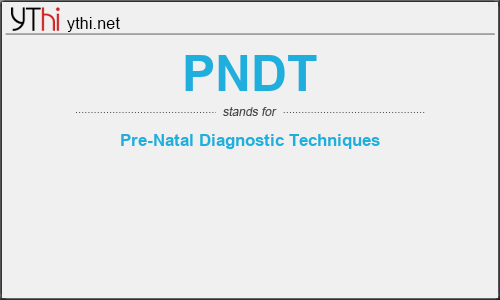What does PNDT mean? What is the full form of PNDT?
The Full Form of PNDT is Pre-Natal Diagnostic Techniques.
Prenatal diagnostic testing involves testing the fetus before birth (prenatally) to determine whether the fetus has certain abnormalities, including certain hereditary or spontaneous genetic disorders.
-
Measurement of certain substances in the pregnant woman’s blood plus ultrasonography can help estimate the risk of genetic abnormalities in the fetus.
-
These blood tests and ultrasonography may be done as part of routine care during pregnancy.
-
If results of these tests suggest an increased risk, doctors may do tests to analyze the genetic material of the fetus, such as amniocentesis and chorionic villus sampling.
-
These genetic tests are invasive and have certain risks for the fetus.
Some prenatal diagnostic tests, such as ultrasonography and certain blood tests, are often part of routine prenatal care. Ultrasonography and blood tests are safe and sometimes help determine whether more invasive prenatal genetic tests (chorionic villus sampling, amniocentesis, and percutaneous umbilical blood sampling) are needed. Usually, these more invasive tests are done when couples have an increased risk of having a baby with a genetic abnormality (such as a neural tube defect) or a chromosomal abnormality (particularly when the woman is 35 or older). However, many doctors offer this type of testing to all pregnant women, and any pregnant woman can request it. These tests have risks, although very small, particularly for the fetus.
Couples should discuss the risks with their health care practitioner and weigh the risks against their need to know. For example, they should think about whether not knowing the results of testing would cause anxiety and whether knowing that an abnormality was not found would be reassuring. They should think about whether they would pursue an abortion if an abnormality was found. If they would not, they should consider whether they still want to know of an abnormality before birth (for example, to prepare psychologically) or whether knowing would only cause distress. For some couples, the risks outweigh the benefits of knowing whether their baby has a chromosomal abnormality, so they choose not to be tested.
PNDT
means
Pre-Natal Diagnostic Techniques![]()
Translate Pre-Natal Diagnostic Techniques to other language.


Leave a Reply
You must be logged in to post a comment.